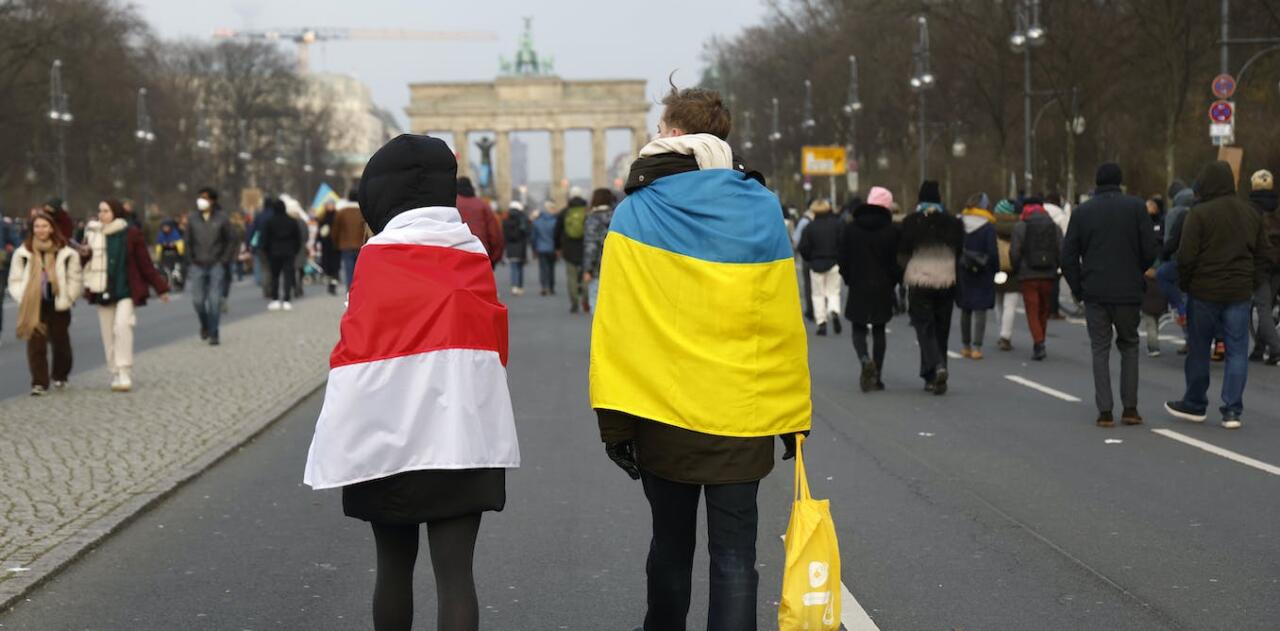The international community has not beat around the bush on Belarus’ role in Russia’s war against Ukraine. On 2 March, the United Nations issued a historical resolution condemning the country’s “unlawful use of force against Ukraine”. As a result, most of the countries who had adopted sanctions against Russia have now also extended them to Belarus, including the European Union. But whatever Lukashenko’s words, most Belarusians share this anti-war sentiment.
“Belarusians have fought enough of others’ wars”
In September 2019, Belarussian strongman Alexander Lukashenko said something that still captures the average Belarusian’s attitude towards conflict: “Belarusians have fought enough of others’ wars.” Of all the USSR’s republics, Belarus paid the highest price in terms of human casualties to the “Great Patriotic War” – World War II, in Soviet parlance. Belarusians start any of the other wars into which they were “dragged” earlier, as Lukashenko put it. In fact, war aversion is a deeply rooted sentiment in Belarus, and underlaid the aspiration for neutrality and a non-nuclear status built into Belarus’ 1994 Constitution.
Yet the country’s neutrality always was a situational one, Belarus being a founding member of all Russia-led security alliances since their inception. Moreover, it was formally abandoned following a constitutional referendum held on… 27 February 2022.
The now amended article 18 of the constitution posits instead that “the Republic of Belarus rules out military aggression from its territory against other states”. A provision violated before it came into force.
Stationed in Belarus since February for snap joint exercises, Russian troops entered Ukraine from the North to take Chernobyl and besiege Kyiv
Since then, missile and air strikes have routinely been launched from Belarusian territory, including strikes on civilian targets.
The constitutional referendum and Lukashenko’s support – albeit reluctant – for Russia’s war prompted protests, which were immediately dispersed. Hundreds of protesters were detained and fined in February and March alone, while several lawyers who expressed concern over the legality of both were disbarred. Anti-war speech, sharing information about the movement of Russian troops or helping outspoken Belarusians relocate to safe countries exposed human-rights defenders, journalists and bloggers to prosecution and long prison sentences on charges of “extremism”.
Other actions included sabotaging Belarusian tracks and trains to slow down shipments of military equipment to Russian troops. At least 52 Belarusians, including 30 railway workers, were thus arrested during the spring. On 29 June, three “rail partisans” who set fire to a relay cabin were charged under article 289 of the Criminal Code (“Act of terrorism”). While nobody was hurt, they could face death penalty due to “aggravating circumstances”. This, of course, had…
La suite est à lire sur: theconversation.com
Auteur: Anaïs Marin, Research fellow with the Centre for French Culture, University of Warsaw

